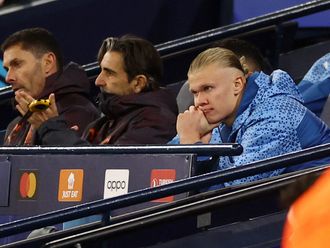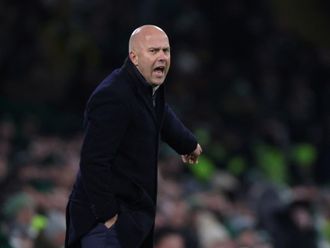A little over a week back, I remember a news story emerging out of Brazil that the ubiquitous public protests had become fewer as the Selecao — as their national football team is known — was still progressing well in the World Cup.
As I am gripped by the night-after syndrome, still trying to come to terms with the mayhem that Belo Horizonte witnessed, my worst fears are that the outrage may come back stronger in the last few days of the showpiece. What’s more, the team’s abject failure will now seriously sour public sentiments about the Rio Olympics coming up in two years’ time.
For a country whose national identity is so inextricably linked with the Beautiful Game, a large majority of the Brazilian population still did not embrace the idea of hosting a World Cup in the first place. The projected $11.5 billion (Dh42.2 billion) cost was seen as prohibitive for a country grappling with unemployment, inflation and rampant corruption — but it was their jingoistic spirit that put a lid to the raw emotions for a while.
If Thiago Silva had been able to hold the winner’s trophy aloft at the Maracana on July 13, it would have been a salve for the country’s festering problems — not to mention a boost to the votes for Dilma Rousseff, the country’s embattled President, who faces elections in October.
History has seen many a politician riding the crest of popularity upon major sporting successes of the country, and Rousseff would have certainly walked away with brownie points in supporting the “bold” decision of bringing the cup to the spiritual home of football six years ago.
Interestingly enough, the President has not been attending the home team’s games after facing verbal abuse during Brazil’s first game against Croatia. With reports emerging that anti-Rousseff chants were heard at the stadium during the semi-final against Germany, it won’t be long before public sentiments go back to square one for Brazil.
There is an inherent risk in riding on inflated public spirits based on any exploits in the sporting arena — where a momentary aberration can change the fortunes of any contest. Think again, if you take away that 19 minutes of emotional paralysis that gripped Brazil following Thomas Mueller’s early goal, one will probably agree that Brazil were not “that bad” as the scoreline suggested.
The World Cup still held the magnetism of Brazil in pursuit of a possible sixth crown, while the summer Olympics is a much more diffused entity, which will further strain the country’s stretched economy. As the Brazilians woke up to the crushing reality of World Cup humiliation on Wednesday, trying to think it must have been all a bad dream, the home truth will have hit them really hard.
Its impact may be more lasting than the ‘Maracanazo,’ a term they coined as a synonym for disaster 64 years ago when Brazil lost to Uruguay in the final of 1950 World Cup at the Maracana.












